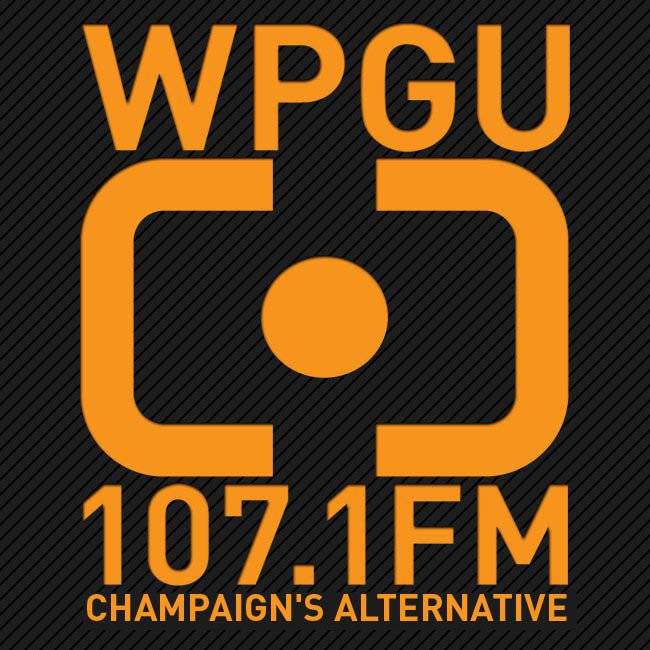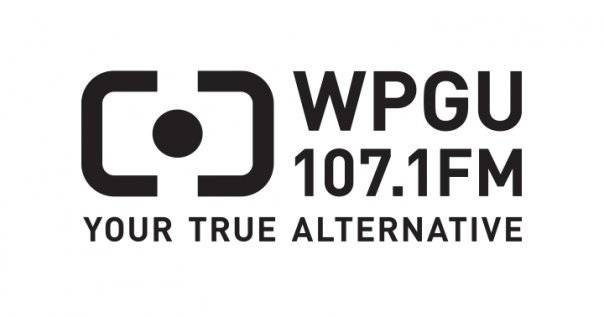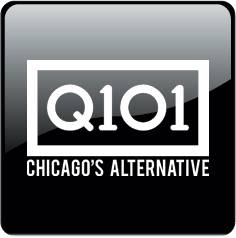 I deeply love Champaign-Urbana. The place has meant everything to me for a little over five years. I tried to give love back the only way I was able to, and that was through music. I didn’t play in a band, and as certain members of some local acts can tell you, I’m awful at every instrument that I’ve ever picked up. But what I did do was go to shows, probably hundreds, and began working to make the largest “alternative” radio station in town (WPGU 107.1) something that reflected the taste of the people I knew and met — not just students, not just locals.
I deeply love Champaign-Urbana. The place has meant everything to me for a little over five years. I tried to give love back the only way I was able to, and that was through music. I didn’t play in a band, and as certain members of some local acts can tell you, I’m awful at every instrument that I’ve ever picked up. But what I did do was go to shows, probably hundreds, and began working to make the largest “alternative” radio station in town (WPGU 107.1) something that reflected the taste of the people I knew and met — not just students, not just locals.
This past weekend, at the best Pygmalion Music Festival I’ve been to, I spent a good chunk of time talking to artists, friends and folks I consider family. Having recently moved away, the topic of conversation went quickly from my new job to “What happened to WPGU?” Seriously, I may have answered different versions of that question 25 times in four days. So, I contemplated my exit from the station, spoke with the rest of the managerial staff who worked with me or above me at WPGU from 2010 to early 2011 and also some current folks that work over there now. Here’s the best way for me to describe what exactly has gone on in the past year leading up to this interesting flip that harkens back to the days of The Planet.
My office at WPGU had a futon. I don’t know if it’s still there or not — I haven’t been inside that thing in months. It wasn’t some rock ‘n’ roll haven for late-night vices (although that would have been way cool). I had that futon in my office because, as the Music Director, I spent more than a few nights sleeping in that small, windowless room. One of those nights was in preparation for Pygmalion 2010, where myself and our other Music Director spent almost 24 consecutive hours altering our back catalog for just one day of programming (You better have liked it, Seth).
Once you get hired as a WPGU Music Director, you find out a few basic things. First, you’re gonna get paid minimum wage if you work 20 hours every two weeks. The company has gone from paying students legit wages to claiming that it is now an “internship” that pays an insulting “salary.” If you work more, you don’t get more. If you’re the MD, sometimes you put in 15 hours in one day, so you can’t work for the money — if you do, you’re in the wrong business. Second, you damn well better know how to run an MS-DOS program because that’s what we used to upload and create each day’s music log or playlist — and it’s worse than it sounds. Third, if you don’t know and understand the people who tune in, chances are that your audience isn’t very large, and if it is, it’s only a matter of time before they get pissed off and find somewhere else that understands them better.
This is ultimately the biggest gap in philosophies between the current regime and the one I was a part of. We wanted to be in touch and seen in the community. Those were the people that were going to buy in to our product, and we wanted them to like it. Clearly, our philosophy was like a freshman sorority girl trying to attract bros — WE WANTED TO BE POPULAR AND LIKED. (Maybe a better analogy can be used, but whatever, I’m not Joyce.)
A new consultant was hired after the longtime Operations Manager went to Washington to pursue a political career last summer. This consultant, “Dilla,” was extremely far removed from the music scene in town and for months would pander to me and the rest of our staff to model our playlist and core sound to that of the now-defunct Q101 in Chicago. But here’s the thing about the alternative landscape in radio — most who are audiophiles and avid music fans understand that “alternative” means absolutely nothing. Alternative to Top 40? Maybe. In radio-land, there is actually a category of music called “Alternative” and another designated as “Active Rock.” The difference between the two can be very slim, as Q101 demonstrated by playing both Arcade Fire and Mumford and Sons (Alt Acts) next to bands like Skillet, Shinedown, Papa Roach and Linkin Park (Active Acts). It’s weird, and it was wrong, and now Q101 is no more.
With that said, it seemed to us that in the past 5–10 years or so, the nature of “alternative” and “indie” were crossing over into the mainstream, and so it seemed feasible to model our station around bands that have significant draws at major music festivals. Arcade Fire, The National, Kings of Leon, the Killers, the Strokes, Black Keys, Modest Mouse, Wilco, etc. Like some of ’em, hate ’em, whatever, it just seemed to make sense. In turn, we’d create a model of bands that sound and draw similarly to these guys because plenty of these bands are beloved (or at least respected) by hipsters, bros, parents, teens and everyone in between. And C-U has a helluva local scene that doesn’t get enough love nationally (maybe that’s my bias, but seriously how can one NOT fit Shipwreck’s Rabbit in the Kitchen… or something from The Beauty Shop into an afternoon radio slot?). So we wanted to rebuild the relationship with the people who set musical trends in town. It makes sense that the folks playing music in Champaign are modeling their music off of stuff they enjoy and listen to. So we ran with that. That’s why you might have heard Braid, Iggy Pop, Gang of Four, Ride, Tears for Fears and other bands mixed in with some of the newer, more popular tunes from bands like Fleet Foxes, Foster the People, Death Cab for Cutie, etc.

This is also why we scrapped the recently returned local hour of music. We respect the hell out of our local acts and treated their art the same as we treated the art of our “core artists.” If your music fit, chances are we were going to play it — and not just on some random Sunday evening between 9 and 10 p.m. Obviously, we have personal tastes that may have clouded out certain acts, but for the most part I don’t think one can argue with the fact that we did our best to feature local artists as much as we could during regular programming. (While I’m on the notion of local music I thought I’d point out that Elsinore drummer Dave Pride was nowhere close to as good as he said he was at Mario Kart 64 and that the youngsters from Grandkids put him down early in our in-studio tournament last year.) We know our tenure and our ideas weren’t perfect, and in the year we were at WPGU, we didn’t achieve everything we wanted, but the groundwork was set for the future. Hell, our Arbitron ratings increased by half a share without even finishing all of our changes. Things were looking up for 2011–12.
Once we were on the verge of graduating it was time for the new Program Director to pick a new staff, who we were to help train. We spent hours helping and setting up folks who would hopefully continue to build these relationships and this station and make it better than we did. The biggest part of this training was explaining to the future managers that they NEEDED to go and be a part of the music scene — introduce yourself at shows and take in as much of C-U’s music as you can. And THEN go downtown, visit art galleries, restaurants, bars and get to know this place. Every week in 2010 you’d be hard-pressed to not see at least one of the WPGU managers around town as a functioning member of Champaign or Urbana, not just confined in between First Street and Lincoln Avenue.
Unfortunately, our advice mostly fell on deaf ears, and you’ll now be hard pressed to even see the new Program Director ever, and the current Music Director might as well be a ghost according to some of the artists I’ve spoken with. I got that feeling after answering, “Who’s doing your job now?” at the start of about 15 of those 25 conversations. Prior to the new staff getting hired, the Music Directors had an intern who was supposed to take over as one of us. And he did in March! For a few weeks. And then he told us that the new Program Director was planning on making some musical changes — modeling WPGU after Q101. Our former intern wasn’t totally down with the changes but wanted to try and sort out the differences, and the current PD, instead, gave him an ultimatum that asked him to either be a button pusher or quit. He quit. I had a chat with the PD, who assured me that the changes were going to be different and not as drastic as our intern had led us to believe. I felt comfortable and was willing to lend the PD my support. I thought we were still kind of on the same page — the core sound would be the same, just some alterations to the back catalogs.
 For the rest of the summer, myself and anyone who asked was assured there wouldn’t be much of a change coming. Hell, we had heard rumblings of the tag-line of the station changing from “Your True Alternative” to “Champaign’s Alternative,” which is creepily similar to Q101’s “Chicago’s Alternative” — hadn’t we already talked about what happened to that station? But we didn’t think that was going to happen — if more than half of the music changed AND the tagline changed, it would essentially be a format change. That’s usually really costly for radio stations.
For the rest of the summer, myself and anyone who asked was assured there wouldn’t be much of a change coming. Hell, we had heard rumblings of the tag-line of the station changing from “Your True Alternative” to “Champaign’s Alternative,” which is creepily similar to Q101’s “Chicago’s Alternative” — hadn’t we already talked about what happened to that station? But we didn’t think that was going to happen — if more than half of the music changed AND the tagline changed, it would essentially be a format change. That’s usually really costly for radio stations.
In July, I went back in to WPGU to work on creating a demo tape and was alerted to a HUGE list of songs that would be infused into our product. Actually, it was an almost equal amount of songs as our (then-current) library, which means that the product is either going to be diluted, or most of what we had worked on adding and compiling was going to be wiped out. On that list was everything from Fuel and 30 Seconds to Mars to Chevelle and Rob Zombie. I couldn’t believe it. I asked one of the current managers what the deal was, and they had been furiously adding some 700 or so tracks for a few weeks preparing for a change. The PD still denied any major adjustments were coming. Maybe I’d be less inclined to be upset over this whole thing if he’d been honest and said, “We’re going to overhaul WPGU.” Instead, he hid behind it, and now it may seem to some like we helped. It was crushing to know that our hard work was being thrown by the wayside AND we were being lied to about it. It was also crushing to know some of the people who are in button-pushing positions didn’t stand up and try and stop the changes — that might hurt a little worse.
For the most part, you won’t see the majority of the new staff out at most shows or getting a feel for what makes C-U tick (like playing darts at the Brass Rail on a Wednesday, listening to jazz at the Iron Post, shooting pool at Esquire, bacon on everything at Boltini!). It’s the stereotype of a transitional period in a college student’s life: Come here and be parasitic for a few years and then leave. Don’t make a mark, don’t make a second home. It’s not right, especially when you have the power to make people in Champaign-Urbana proud of a radio station in their hometown because it’s uniquely representative of their tastes. Speaking of representing your tastes, don’t bother calling in to the request line — word from multiple DJs has told me that WPGU will NOT play your request per managerial orders. I’m not kidding.
So I sit here, embarrassed for what is currently no more than a station that once again lacks identity — one that is misguided and lacks understanding of this indie haven in the Midwest. A station that should wear Midwestern emo such as Cap’n Jazz and Braid on their sleeves is now handcuffed by lists, books, and charts — numbers tell them what to play on the radio, not the people who live in the towns that they broadcast to.
I don’t know how to keep this from sounding like sour grapes. I don’t. But I feel I needed to make sure that those who cared about WPGU, or at least respected our work, understand that the group you all had met and hopefully liked in the past year tried to set something up that represented Champaign-Urbana. Not the suburbs, not Chicago, not New York or Los Angeles. Chevelle, Linkin Park, Our Lady Peace, Blue October, Paramore, Lenny Kravitz and the rest don’t represent Champaign-Urbana. We didn’t want this, whatever it is — and I don’t think you do, either.
Tom Pauly served as musical director for WPGU from 2010–11, and hosted the Plastic Factory, Prime Time 6–9, Make Me a Mixtape, and other shows throughout the past several years.








